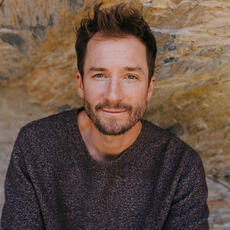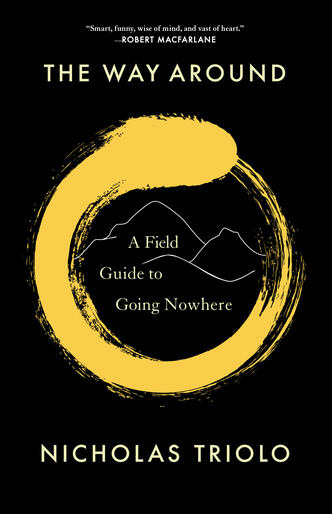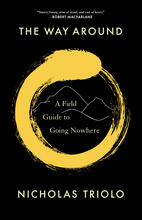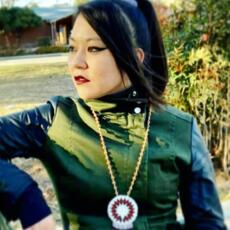The Ecology of Surprise: A Conversation with Robert Macfarlane and Nicholas Triolo
On Monday, June 9th, Milkweed welcomed internationally renowned author Robert Macfarlane to celebrate the first stop of his book tour for his latest memoir, Is a River Alive? He was joined by Milkweed author and long-distance trail runner Nicholas Triolo, whose debut memoir—The Way Around: A Field Guide to Going Nowhere—will be available July 8th, 2025.
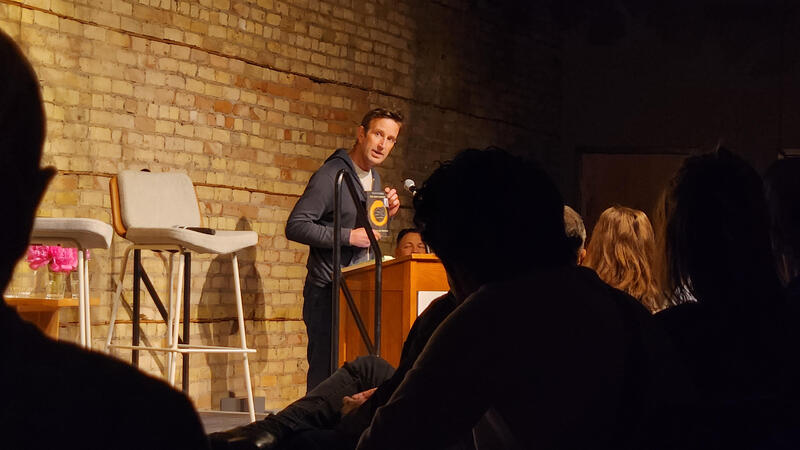
As world-renowned author Robert Macfarlane and memoirist Nicholas Triolo serendipitously join Milkweed for a night of kora and conversation, they collectively conjure a symbol of their books converging into the more-than-human landscape. Together, they discuss a confluence of rivers, books, and shapes, laughing over the kinship between their book covers. “We joked that his book is the circle and mine is a line but, as we talked, we realized they made more of a spiral,” the two authors joke, holding their books side-by-side. Between Is a River Alive? and The Way Around: A Field Guide to Going Nowhere, a new landscape promises their shared topic of the night: the ecology of surprise.
Dressed in muted blues, Robert Macfarlane captures the very silhouette of a worn-smooth river stone when he takes the podium. Next to him, a pink puff of peonies blush on the table next to him. “Rivers,” he begins, pleading their case for transformation in the western world, “have been radically reimagined. It’s from a combination of threat and radical re-imagining of what river is, not a resource, but life force.” In classic storytellers’ bedtime cadence, he charms the crowd effortlessly into shocks of laughter. Outside, late-spring rains tap the roof softly overhead, as if the water itself wants to listen, too.
“Rivers have been radically reimagined. It’s from a combination of threat and radical re-imagining of what river is. Not a resource, but as a life source.” — Robert Macfarlane
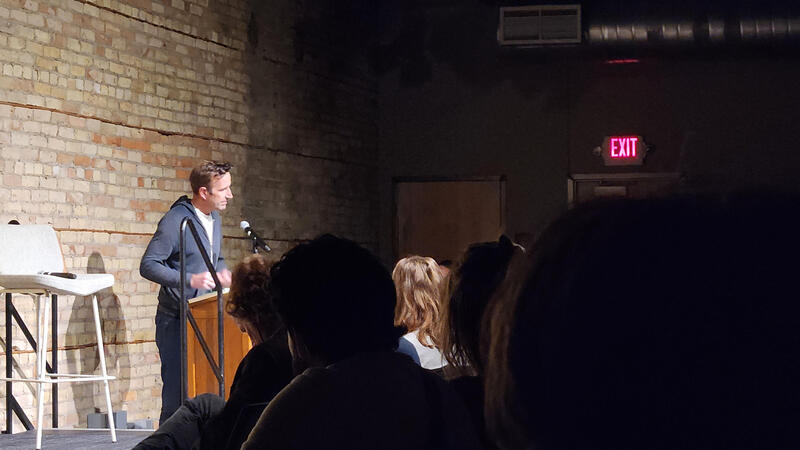
Yet, just as his book promises, his reading winds along all forms of water bodies. “I do actually discuss rivers eventually,” he laughs, “of which I’ve come to call this particular one by its Native name. Though,” he adds, “you’d know it as the river that flows between square, blocky cliffs.” As he guides us from waterways to tributaries, he marks the story where lakes end and rivers begin. “At some level, I must surrender agency to this incomprehensible presence. A river is born, and it bears us.”
Coaxed from the water’s edge, Nicholas Triolo reads next, beckoning us to mountain peaks and Tibetan terrain. Here lies the meditative patterns of circumambulation of Kora waiting to be discovered. Before he begins, his hand dives into his pockets, and he unearths a slim tube of water for the crowd to see. “I want them to live with us, and also listen with us, in this moment,” he tells us, recognizing this water-being as a guest to grace the stage between them. When he turns and nods to Robert, his voice falters. “I literally wouldn’t be here, without his words.” Here, he cranes his neck and squints into the darkness, searching for Daniel Slager. He lifts his memoir up in the air, its looped gold circlet a glowing halo in his hands. “I can’t express how much Milkweed has allowed me to exercise my deepest longing to express myself.”
“I can’t express how much Milkweed has allowed me to exercise my deepest longing to express myself.” — Nicholas Triolo
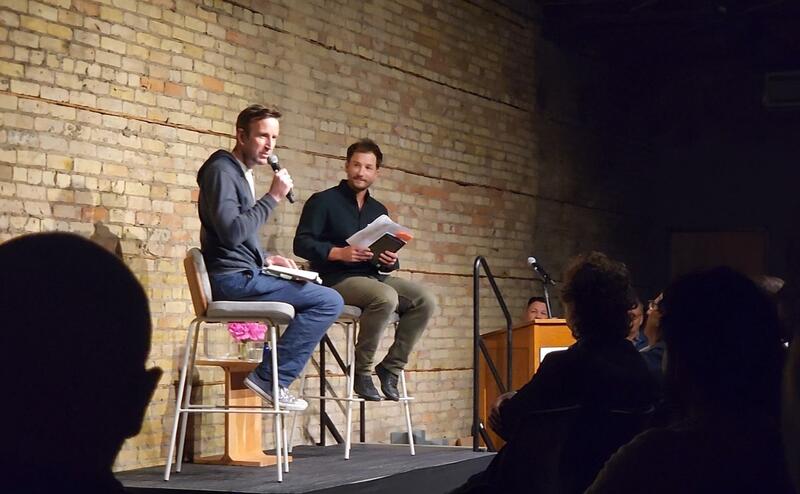
“This book,” he explains, “is a confrontation with linearity and extraction. It’s a conversation that began ten years ago, when I was an endurance athlete.” From there, he describes how he stumbled across circumambulation—the act of circular walking. Rather than summit peaks, in which his old life as a pro-athlete guided him forever upward, he offers new wisdom: “We do not belong up here. We are not gods.” Here, he wends us around the de-centering of the human self—where mountains become human and vice versa. As he draws his reading to a close, he takes care to scan the crowd, holding us rapt. “Thank you so much, by the way. For listening.” With charismatic bashfulness, he has charmed the crowd with Kora and 100-mile circuits—yet his gratitude has spilled to every person in the room. If water holds emotion, as Robert posed, surely we all felt it in that moment, coursing over the crowd like a tide.
“We’re all water bodies. When we run, we are rivers. When we sit, we become one of the ten thousand lakes here in the beautiful state of Minnesota.” — Robert Macfarlane
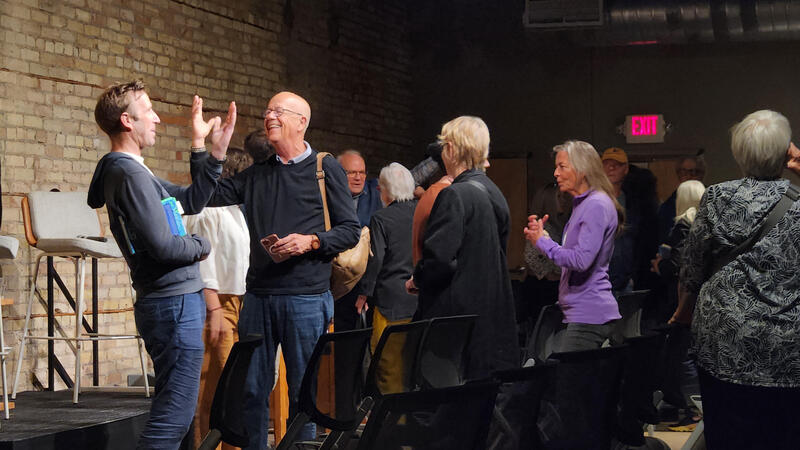
Afterward, when asked, “does frozen water have life?” Robert nods vigorously alongside Nicholas. “Ice has a very active social life. It is always seeking a body. In fact, we’re all water bodies. When we run, we are rivers. When we sit, we become one of the ten thousand lakes here in your beautiful state of Minnesota.”
To Nicholas, a crowd member asks: “What’s your relationship to running along rivers as opposed to circling them?” He smiles, recognizing the listener as a long-time supporter. “On a recent trip to Portugal, I walked 120 miles to document a rewilding project. What was revealed to me was the ecology of surprise, especially along the river. Something about rewilding also meant rewiring my understanding of this surprise. Every day was more and more of a reveal. It wasn’t just this linear line, it was a field to discover—an entirely new shape. After spending an entire novel revolving around circumambulations, I realized on this trail that there was no focal point. I thought, ‘this must be how the earth sees itself.’
In a book calling for the resurrection and protection of the more-than-human landscape, Robert also takes time to rejoice in the ecology of surprise through the quietly rare power of milkweed. “The milkweed plant,” he writes, “is remarkable for the number and diversity of invertebrate species who partner with it. It thrives on supposed waste ground and cracks in pavements. Its hardiness and adaptability make it one of the commonest of plants—so much so that it is rarely honored with close attention.”
For our authors, however, this adaptability has transcended the properties of the plant, and has shaped each writer’s publishing journey. In a special event held the next day, members of Milkweed Edition’s Kaleidoscope program—the core leaders of our philanthropic community—had the chance to participate in a discussion with Daniel Slager and Nicholas Triolo. “I never had an affinity for writing, at least in publishing, before Milkweed. Now, I’m sitting here after my first reading with Robert Macfarlane, and it’s still so surreal. I don’t know how normal this is for traditional publishing, but everyone took such care in checking in with me throughout the entire process. I learned to trust my own voice by trusting in Milkweed.”
“I never had an affinity for writing, at least in publishing, before Milkweed. Now, I’m sitting here after my first reading with Robert Macfarlane, and it’s still so surreal. I learned to trust my own voice by trusting in Milkweed.” — Nicholas Triolo
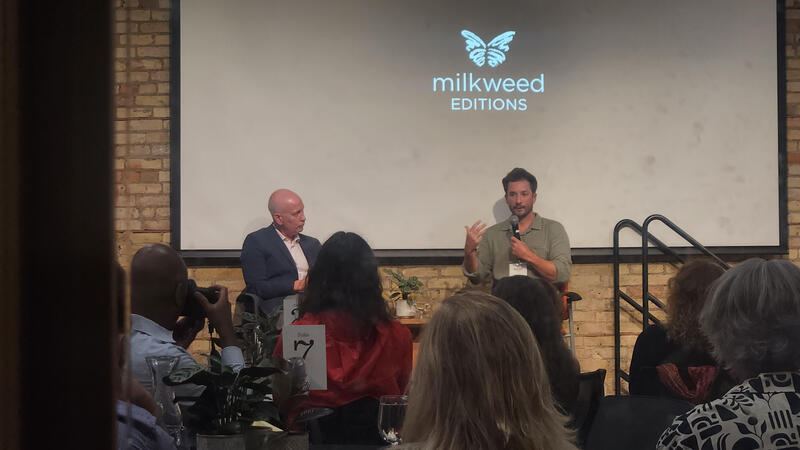
For an in-depth debrief on his trip to Minneapolis from Nicholas Triolo himself, please read his latest entry on The Jasmine Dialogues, lovingly titled Meet Your Heroes.To discover the story behind Nicholas Triolo’s journey through Kora, you can preorder his memoir, The Way Around: A Field Guide to Nowhere, here, available July 8th, 2025.
